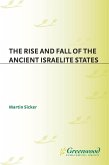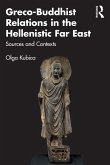Sicker explores the political history of the Middle East from antiquity to the Arab conquest from a geopolitical perspective. He argues that there are a number of relatively constant environmental factors that have helped condition-not determine-the course of Middle Eastern political history from ancient times to the present. These factors, primarily, but not exclusively geography and topography, contributed heavily to establishing the patterns of state development and interstate relations in the Middle East that have remained remarkably consistent throughout the troubled history of the region.
In addition to geography and topography, the implications of which are explored in depth, religion has also played a major political role in conditioning the pattern of Middle Eastern history. The Greeks first introduced the politicization of religious belief into the region in the form of pan-Hellenism, which essentially sought to impose Greek forms of popular religion and culture on the indigenous peoples of the region as a means of solidifying Greek political control. This ultimately led to religious persecution as a state policy. Subsequently, the Persian Sassanid Empire adopted Zoroastrianism as the state religion for the same purpose and with the same result. Later, when Armenia adopted Christianity as the state religion, followed soon after by the Roman Empire, religion and the intolerance it tended to breed became fundamental ingredients, in regional politics and have remained such ever since. Sicker shows that the political history of the pre-Islamic Middle East provides ample evidence that the geopolitical and religious factors conditioning political decision-making tended to promote military solutions to political problems, making conflict resolution through war the norm, with the peaceful settlement of disputes quite rare. A sweeping synthesis that will be of considerable interest to scholars, students, and others concerned with Middle East history and politics as well as international relations and ancient history.
In addition to geography and topography, the implications of which are explored in depth, religion has also played a major political role in conditioning the pattern of Middle Eastern history. The Greeks first introduced the politicization of religious belief into the region in the form of pan-Hellenism, which essentially sought to impose Greek forms of popular religion and culture on the indigenous peoples of the region as a means of solidifying Greek political control. This ultimately led to religious persecution as a state policy. Subsequently, the Persian Sassanid Empire adopted Zoroastrianism as the state religion for the same purpose and with the same result. Later, when Armenia adopted Christianity as the state religion, followed soon after by the Roman Empire, religion and the intolerance it tended to breed became fundamental ingredients, in regional politics and have remained such ever since. Sicker shows that the political history of the pre-Islamic Middle East provides ample evidence that the geopolitical and religious factors conditioning political decision-making tended to promote military solutions to political problems, making conflict resolution through war the norm, with the peaceful settlement of disputes quite rare. A sweeping synthesis that will be of considerable interest to scholars, students, and others concerned with Middle East history and politics as well as international relations and ancient history.









